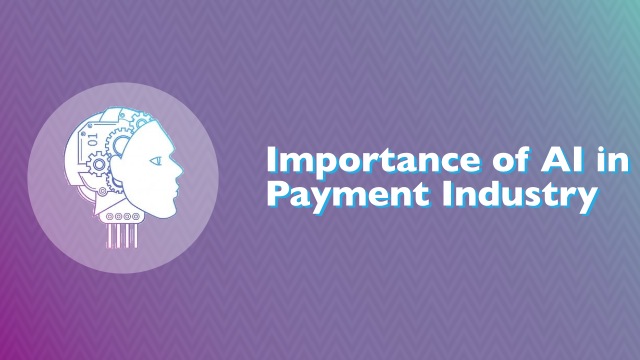There’s no escaping Artificial intelligence (AI). If it isn’t ChatGPT making the headlines, it’s talk about whether robots will surpass human intellect one day.
And while there might be some sensationalist news stories here and there, the reality is that AI is extremely useful and even being used in areas you might not be aware of.
This particular post discusses the role of Artificial Intelligence in the payment industry today.
Importance of AI in the Payment Industry
AI is playing a bigger role than ever in the payment industry today, revolutionizing how we make and receive payments.
Here is the list of major importance of AI in the online payment industry:
- Fraud Detection and Prevention: AI algorithms can analyze mammoth amounts of transaction data and info, and identify patterns that identify scams, or the risk of one.
- Personalized Payments Experience: Analyzing customer data to understand their needs, preferences, and, of course, spending habits.
- Real-time Payments and Settlement: Facilitating real-time payments, enabling transactions to be processed and settled in seconds.
- Risk Management and Compliance: Assess and manage payment-related risks, helping businesses to comply with legal requirements and safeguard against potential compliance breaches.
- Payment Infrastructure Optimization: Optimizing payment infrastructure by improving transaction processing efficiency, and reducing processing times.
- Customer Service and Support: Chatbots and virtual assistants can answer customer queries, resolve issues, and provide personalized recommendations.
- Predictive Analytics and Market Insights: Helps businesses predict future trends, optimize pricing strategies, and tailor marketing campaigns.
Who Can Benefit From AI In Payments?
A whole host of varying industries are utilizing the power of AI payments. Here are just a few of the businesses that are seeing the benefits for themselves; and some of them might just surprise you.
Entertainment Businesses
The entertainment sector has seen advancements in payment processes with the integration of AI technologies. Online casinos specifically have benefited from AI algorithms that enhance financial transaction security while detecting and preventing fraudulent activities. These algorithms also maintain the integrity of gaming experiences.
Leveraging AI capabilities allows online casinos to provide payment experiences by understanding user preferences and recommending payment methods. Real-time decision-making for transaction approvals is made possible through AI-driven risk assessment models, resulting in a seamless payment environment.
Furthermore, the predictive capabilities of AI optimize the pricing of assets within gaming platforms by providing insights into player behavior and preferences.
While it’s still early days for California, Washington State, and other states that have legalized online poker and daily fantasy sports but have yet to take the plunge when it comes to their online casinos, offshore gambling websites used by bettors in these states are already using the power of AI to process payments.
Subscription Businesses
Subscription-based models rely on customer engagement and satisfaction.
AI plays a role in churn management by analyzing patterns in user behavior and predicting risks of customer attrition.
By employing easy-to-use communication strategies and targeted promotions businesses can address pain points and more effectively retain customers. Additionally, AI aids in managing recurring payments to ensure a reliable subscription experience for users.
Furthermore, AI-driven predictive pricing analytics empowers businesses to adapt subscription charges following market dynamics and user preferences. This not only enhances customer satisfaction but also helps in mitigating customer attrition rates over an extended period.
SaaS (Software, as a Service)
AI is transforming the SaaS industry by introducing efficiency and intelligence into various aspects of business operations.
Personalization plays a key role as AI algorithms analyze user data to customize software experiences based on preferences. Automating repetitive tasks within SaaS platforms boosts productivity, allowing users to focus on strategic elements of their work.
AI-powered predictive analytics also provides insights into user behavior by empowering businesses to optimize conversion rates, refine project management processes, enhance customer relationship management (CRM), and strengthen cybersecurity measures.
In short, AI heavily contributes to the enhancement of SaaS solutions making them more adaptable and user friendly.
Conclusion
So, there you have it: a rundown of how AI is revolutionizing the payments industry. From helping to mitigate human error to ensuring payments are faster than ever and hassle-free, we have a lot to thank AI for when it comes to payments in the future.
And with technology advancing at an exponential rate, payments will only become more and more simplistic – for both customers and businesses.
